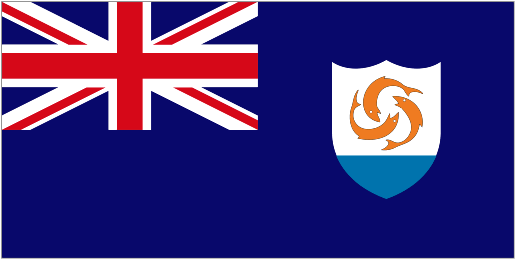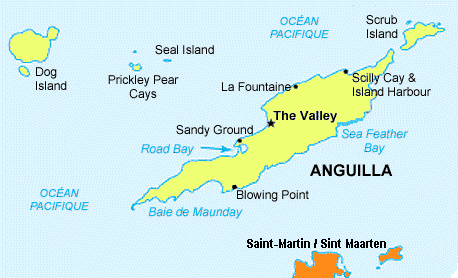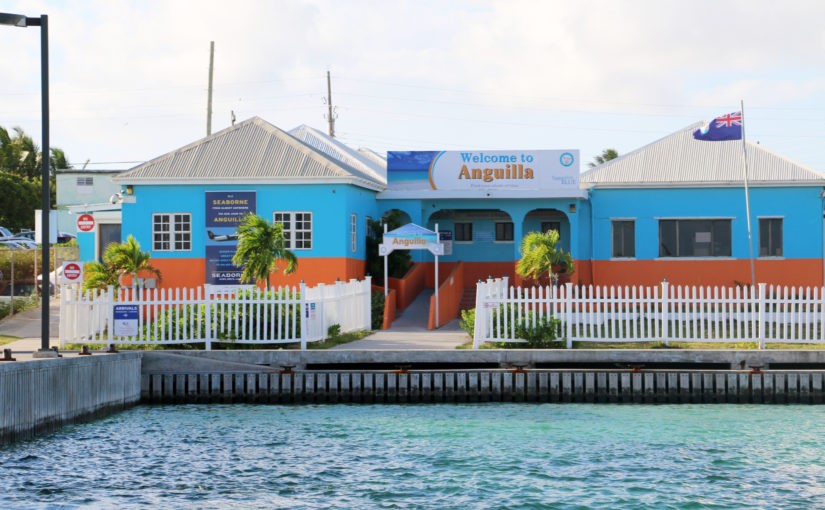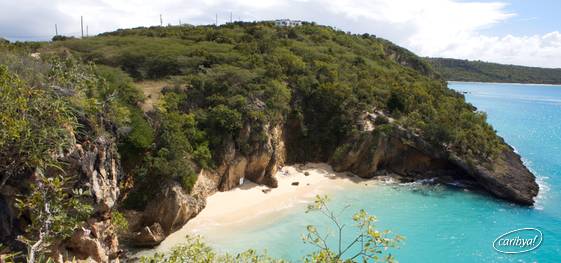
An Anguilla Foundation is modeled after Monaco, Liechtenstein, Panama, and Nevis private foundations. A Private Foundation is a hybrid between a corporation and a trust. Foreigners can create foundations and maintain complete control. It is a separate legal entity from its founder and beneficiaries. The foundation can enter contractual agreements and purchase and sell real properties and hold assets.
The Anguilla Foundation Act of 2008 governs how private foundations are formed, their legal activities, and termination. For various offshore foundations visit this comparison table.
Background
Anguilla is located in the Caribbean near the Virgin Islands and Puerto Rico and has been a British Oversees Territory since 1980.
Politically, it is described as a parliamentary dependency under a constitutional monarchy which is England’s Queen Elizabeth II.
Benefits
An Anguilla Foundation has the following benefits:
• Foreign Ownership: Foreigners can create foundations and maintain total control.
• No Taxes: Foundations are exempt from all taxes and duties. Note, American taxpayers and everyone from countries taxing worldwide income must declare all income to their tax authorities.
• Asset Protection: Foundations are separate legal entities which own all of the assets shielding the Founder and the Beneficiaries from their creditors.
• Estate Planning: A perfect estate planning tool as the Founder no longer owns the assets which can be distributed to his or her heirs or remain with the foundation for future heirs of the beneficiaries. Costly probate proceedings and inheritance laws in other countries can be avoided.
• Privacy: The names of the Founder, Beneficiaries, Council members, and Guardian can be withheld from the public records.
• Fast Registration: It normally takes just one business day to register a foundation in Anguilla.
• Commercial Activities: There are many types of commercial activities available to foundations.
• Perpetual: The foundation can have an indefinite lifespan.
• Arbitration: Anguilla has adopted an Arbitration system to settle any disputes between parties in a foundation to avoid lawsuits.
• English: As a current British overseas territory, the official language is English.

Anguilla Foundation Name
An Anguilla foundation’s name must not resemble any other legal entity in Anguilla. The word “Foundation” must be included at the end of its name.
Restricted Activities
Anguilla foundations are prohibited from conducting business activities within Anguilla with citizens or residents.
Banking, financial, and insurance services and activities require the appropriate government license.
Maintaining an international offshore status requires that no Anguilla real property be purchased and neither the Founder(s) nor Beneficiaries can be Anguilla citizens or residents.
Registration
A local registered agent files documents with the Registrar verifying that the minimum endowment of $10,000 USD is satisfied. Files the Declaration of Establishment (DOE). Pays the government fees.
The DOE must include:
• Foundation name – Must end with the words “Foundation” or its abbreviation;
• Registered Agent’s name and address;
• Founder’s name and address;
• Council members names (personal or nominees);
• Secretary’s name;
• Guardian’s name and powers;
• Beneficiaries names;
• Foundation’s purpose;
• Bylaws, provisions for powers, duties, and other important terms and conditions.
After approval, a Certificate of Registration proving the foundation’s existence will be issued by the Registrar. This Certificate will contain:
• Registration date;
• Foundation’s name;
• Foundation’s registration number;
• Council member’s names and addresses (nominees can be used);
• Registered Agent’s name and address;
• Foundation’s purpose; and
• Initial endowment.
The Certificate is valid for one year requiring annual renewals. Penalty fees will be imposed and if not paid can lead to the foundation being struck from registration and terminated.
Asset Protection
Anguilla foundations are separate legal entities owning all assets transferred to it from the Founder. Neither the Beneficiaries nor the Founder own any of the assets. Thus, all assets are separated from prior owner(s).
The Anguilla Foundation Act of 2008 provides that foundations DOE and Bylaws can declare that all of the foundation’s assets cannot be subject to other countries’ laws regarding creditors’ claims, insolvency, bankruptcy, and seizures.
Estate Planning
The DOE designates when assets of the foundation can be transferred to the beneficiaries. The DOE may require all assets to remain in the foundation’s ownership for future generations of the beneficiaries’ heirs.
Once all assets have been transferred from the founder’s ownership, there is no need to prepare a will which becomes a public document upon his or her death with public scrutiny and time consuming and costs probate proceedings.
The Founder can designate when the foundation’s assets can be passed from his/her heirs and the next generation of heirs and onwards. There is no need for a testamentary will or leaving behind a personal estate. Seychelles laws specify that other countries laws forcing heirship do not apply.

Privacy
The public only has access to the Certificate of Registration which does not contain the name of the Founder or Beneficiaries. However, it does contain the names of the Council members which is why most foundations use nominee Council members for privacy.
Foundation Bylaws
The Foundation’s Bylaws is an optional private document which does not have to be filed in any public records. Typically, the Bylaws designate the beneficiaries, council members, and how assets will be maintained and distributed, and what entitlements beneficiaries are entitled along with any other important terms or conditions.
Foundation Founder
There can be one or more persons who create (form) the private foundation called the Founder.
The Founder can maintain complete control over the foundation depending upon how the DOE and the Bylaws prescribe. Such powers may include appointing a trusted Guardian who will oversee the foundation’s investments, council, beneficiaries, and assets with powers to remove, replace, and disburse assets.
Beneficiaries
The person(s) or organization which inherits or benefits from the foundation’s assets. The DOE may declare that the foundation will continue to exist for generations where every beneficiary’s heirs will become future beneficiaries.
Foundation Council
At least one person must be a member of the Foundation Council which manages the activities of the foundation. A member can be a beneficiary or a founder. If the Council does not include a local resident member. A local Secretary must be appointed. Nominee council members can also be appointed for increased privacy which also eliminates the need to appoint a Secretary.
Foundation Guardian
An option for every foundation is the appointment of a Guardian to oversee the foundation and its council. The Guardian can be a Founder or a trusted third party. This is especially recommended when using nominee Council Members.
The DOE or the Bylaws can designate the Guardian and what powers he or she may have including hiring or firing Council Members and how the foundation is managed.
Secretary
Every Anguilla foundation needs a local secretary if a local resident is not a Council member.
Registered Agent
Every foundation needs a local registered agent who will conduct the application process for government registration.

Minimum Endowment
The total value of the foundation’s initial endowment must be a minimum of $10,000 USD at the time of registration.
Annual Meeting
Annual meetings are mandatory. The meetings can be held anywhere in the world.
Accounting
No requirements exist for audits, bookkeeping, or government accounting. The foundation decides what accounting practices will be maintained and what records will be kept.
Taxes
Anguilla does not impose any taxes on their foundations as long as the founder and beneficiaries are not citizens or residents of Anguilla and does not purchase real property in Anguilla.
Funds held by Anguilla foundations are not considered a source of income for tax purposes.
Note: American taxpayers must disclose all global income to their tax agency, as well as, all others subject to global taxation.
Public Records
While the foundation’s DOE must be filed with the Registrar which contains the Founder’s name, only the Certificate of Registration is available to the public which does not contain the names of the Beneficiaries or the Founder. Since the Certificate contains the names of the Council Members, many foundations use nominees.
Therefore, information on the founder and its beneficiaries is not public information.
Time for Establishment
Expect for the formation and registration of a foundation to take one business day.
Shelf Foundations
Shelf foundations are not available for purchase due to their uniqueness.
Conclusion
An Anguilla Foundation has the following benefits: foreign ownership and control, no taxation, asset protection, estate planning, privacy, fast formation, commercial activities flexibility, perpetual life, arbitration of internal disputes, and English is the official language.


